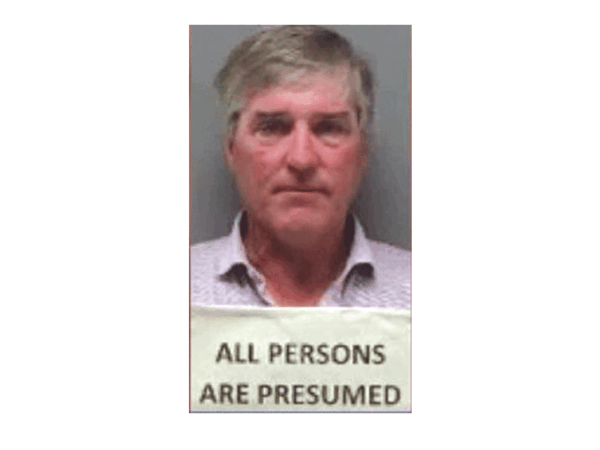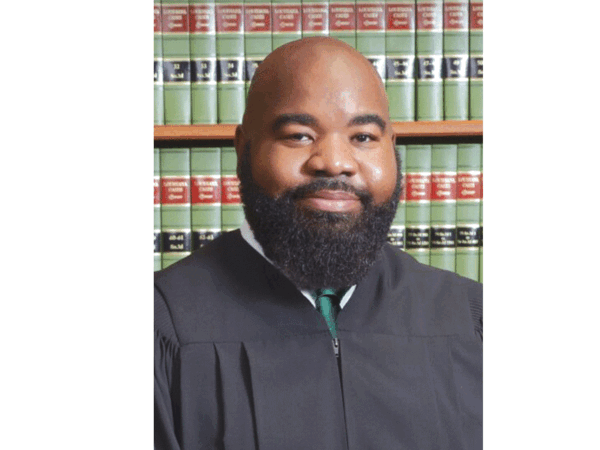Faced with prospect of a non-unanimous jury, he plead guilty to two murders he did not commit to get 22 years in prison instead of life
By Roderick Mitchell
Free Press Staf
Rico Collins had a past he was trying to correct when he was arrested in June of 2012 for his part in the murder of two Monroe residents.
The Shreveport native knew he had to change. He attended the Stone Hill Baptist Church to turn his life around and set out to find an honest job. Rico joined up with Demetric Whitlock to travel to South Louisiana to apply for jobs at an oil field.
Whitlock and Rico were not friends. Their only connection was that their sisters were a lesbian couple.
On June 12th, 2012, Whitlock drove around Monroe in his 1999 Lincoln Town Car and stopped at 4591 Winnsboro Road. Whitlock stopped to allegedly collect money from someone who owed him.
Rico’s life changed that night.
While Rico sat in the car and waited for Whitlock to return, two murders were underway inside the house. Whitlock killed Dexter Buckhalter and Russ Atkins. After the slaughter inside the house, Whitlock ran to his car to get Rico. Rico, unaware of the activities in the house, ran to the front door where a victim laid there and grabbed his legs pleading for help. As the victim held onto Rico’s legs, Whitlock stabbed the victim in the back.
Rico was upset. He had no plans to kill anyone, he was trying to turn himself around and now two people were dead.
Back in Shreveport, Rico’s conscience got to him about that terrible night. He remembered asking Whitlock to leave the victim at the front door alone. He also remembered Whitlock’s haunting answer, “He is a witness, I got to kill him.”
Troubled, Rico confessed to his pastor, the Reverend Don Taylor. He also confessed to his brother and eventually to the police.
Rico Collins was charged with second degree murder.
Rico’s past came back to haunt him. He had been arrested several times for petty crimes; that’s the part of his life he was trying to turn around. His record painted him as a career criminal, his recent turnaround attempts were not enough to win him any favors at bond hearings.
His bond was set at $2 million. His lawyers tried to get it reduced, but the judge only shaved off $500,000. He now faced a $1.5 million bond.
The deck was slowly being stacked against him. Prosecutors made it known that they planned to use photos of the two murder victims in Rico’s trial. The photos would be devastating. His attorney tried to stop the photos from being used but her motions were denied by Judge Stephen Winters on August 30th 2013.
The Non-Unanimous Jury Wall
As he prepared for trial, Rico found himself facing the same wall that others like himself face, the prospect of facing a non-unanimous jury. In any state other than Louisiana and Oregon, a unanimous jury verdict is needed to convict a suspect. In Louisiana as many as two jurors can have a doubt and a conviction can still happen.
The non-unanimous jury is an example of post slavery laws designed to easily convict former slaves, imprison them and contract prison laborers for fees. Angola became the largest prison in the South, and remains so today, mostly maintained on the strength of easy convictions based on the state’s non-unanimous jury laws which were passed in 1898 along with the Grandfather Clause and other laws aimed at rendering blacks powerless.
For Rico Collins, the non-unanimous jury meant his chances of raising a doubt about his guilt were very slim. He could be convicted of double murder and spend the rest of his life in jail, unless he accepted a plea offer, and testified against Whitlock.
Rico filed a motion that the non-unanimous jury violated his Sixth Amendment rights to the United States Constitution. Judge Winters denied that motion on August 30th, 2013 as well. Having no hope of leaving prison, Rico took the plea deal of manslaughter for aiding and abetting. He testified against Whitlock who was eventually convicted of both murders and sentenced to life in prison.
Even though he turned himself in, identified the murderer and testified against him in court Rico was sentenced to 22 years on September 11th 2013. With good behavior he could be released in seven years.
Rico, rode to Monroe that night with Whitlock on his way to a job, but he is now working for the prison system.
Under ordinary circumstances Rico Collins would have been able to raise a doubt about his complicity in the double murders, but faced with the Non-Unanimous Jury rule, it was a legal wall too high to climb.
Louisiana has a history of filling its prisons with African-Americans. The non-unanimous jury has been a legal tool that has kept black men flowing into Louisiana prisons for well over a century.
There’s a growing body of evidence that the non-unanimous jury doesn’t work. Louisiana has a high crime rate and a high incarceration rate. In Orleans Parish, 80% of the convictions are non –unanimous yet the parish has the highest rate of wrongful convictions in the United States according to the Innocence Project in New Orleans. Many studies on non-unanimous juries have shown that they reach decisions quicker and have more incorrect verdicts.
Rico’s attorney, Peggy Sullivan, says there is an argument that the non-unanimous jury is rooted in “frankly racism.”
“The non-unanimous jury can dilute the ability of minorities to make an impact.”
She says, “It’s two schools of thought. When it’s turning your way and you only need 10 people to vote not guilty that’s obviously good for you.” However she believes, “Juries have tended to be conservative.”
“If I had a jury trial and got 12 people and I had to convince three of them to vote not guilty in order to get a hung jury as opposed to one, it’s not necessarily good for me,” Sullivan said.
Ms. Sullivan, who has a contract with the Louisiana Appellate Project, has tried to convince the Louisiana Supreme Court to let defendants be judged by unanimous juries, but failed.




